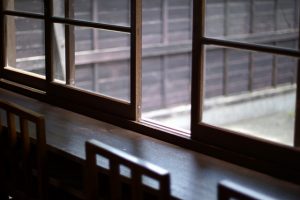An Introduction
A special course offered by guest contributors Adrian Stagg and Emma Power from the University of Southern Queensland!
Open education has the focus of sustained research, teaching, and media over the last fifteen years; with 2017 recognised internationally as ‘The Year of Open’. The notions of widening participation in education, reducing costs to students and institutions, and improving the quality of teaching and learning are deeply embedded into open culture. In many ways, openness is simply an extension of academic values and existing culture – one additional approach to practice that can be used for specific contexts.

This Coffee Course asked practitioners to consider the role of openness in their own work, and provided opportunities to re-evaluate (or re-visit) the value proposition of the university in a participatory and democratic society. It introduced the foundational ideas of open educational practice (OEP) and open educational resources (OER), how it has been used in Australia and internationally in higher education, and explored opportunities for integration into day-to-day teaching and learning activities.
The course is structured by using critical questions as a lens for engaging with resources about openness and how it might align with your existing work. There are opportunities to extend your exploration and share with others, as well as participate in a broader conversation across a number of universities.
Course Dates
The course was offered as part of International Open Education Week 2017 and ran from Monday, 27 March to Friday, 31 March 2017 through this blog, but is accessible online to anyone interested. There are 6 blog posts that will each take about 10-15 minutes to work through – just click through each link below.
Modules
- Day 1: What kind of open do you want? This will explore the underpinning concepts of openness, especially the distinction between free and open, and how open education is enabled.
- Day 2: Open Educational Resources: giving content for free. Why would an institution or a practitioner consider sharing educational content with the world? What possible value proposition could motivate this behaviour?
- Day 3: Research as an Open Educational Resource: expanding impact? Research publications are used as teaching resources in most university courses. This topic discusses open access publishing and how it both adds value to teaching and learning, whilst also challenging impact metrics.
- Day 4: ‘I’m not allowed to do that to a textbook!’ Discovering and using OER. OER can be found in a number of locations worldwide and allow practitioners to reuse, redistribute, remix, revise, and retain resources (the 5 R’s). Locate and use some OER over your coffee (or beverage of choice) during today’s post.
- Day 5: Join the Dark Side: we have openness. As we conclude the Coffee Course, you’re invited to reflect on a few case studies of global use of OER and how this might be integrated into your own practice. Ideation and sharing will be the focus of today – and who knows, you might be considering an open education activity of your own.
- Day 6: Conclusion. A summary and reflection of the course, with links to important resources and further information to extend your practice with OER.
Facilitators
 Adrian Stagg is currently the Manager (Open Educational Practice) for the University of Southern Queensland. His career has included over 14 years in both public and academic libraries, followed by 7 years in positions as a Learning Technologist and eLearning Designer. Adrian holds a Master of Applied Science (Library and Information Management) from Charles Sturt University, and he is now a PhD candidate at the University of Tasmania researching the Australian practitioner experience in the reuse of Open Educational Resources (OER). He also has an interest in the role of educational policy and openness.
Adrian Stagg is currently the Manager (Open Educational Practice) for the University of Southern Queensland. His career has included over 14 years in both public and academic libraries, followed by 7 years in positions as a Learning Technologist and eLearning Designer. Adrian holds a Master of Applied Science (Library and Information Management) from Charles Sturt University, and he is now a PhD candidate at the University of Tasmania researching the Australian practitioner experience in the reuse of Open Educational Resources (OER). He also has an interest in the role of educational policy and openness.
Publications: https://eprints.usq.edu.au/view/uniqueauthor/350.html
 Emma Power is a research assistant for the Pro-Vice Chancellor’s Office (SILS), at the University of Southern Queensland. Her Bachelor of Science and Master of Counselling qualifications have influenced her work as researcher for the 2015 to 2017 Open Educational Practice (OEP) Grants offered by USQ, as she is particularly interested in qualitative interviewing and research ethics. Her OEP Grants research is centred on investigating and understanding the experiences of academic staff engaging with OEP and creating Open Educational Resources (OER).
Emma Power is a research assistant for the Pro-Vice Chancellor’s Office (SILS), at the University of Southern Queensland. Her Bachelor of Science and Master of Counselling qualifications have influenced her work as researcher for the 2015 to 2017 Open Educational Practice (OEP) Grants offered by USQ, as she is particularly interested in qualitative interviewing and research ethics. Her OEP Grants research is centred on investigating and understanding the experiences of academic staff engaging with OEP and creating Open Educational Resources (OER).
Publications: https://eprints.usq.edu.au/view/uniqueauthor/13439.html
All are welcome
We welcome all staff, including tutors, demonstrators, professional staff, and academics at the Australian National University and beyond to join us for this course.
How does the course work?
All you need to do is visit the home page of this blog and click on the red Subscribe button (scroll down to the red banner to find it) to receive future posts. We invite you to comment and discuss on each post. Feel free to participate as much or as little as you prefer.
Technology-Enhanced Learning in Higher Education Certificate
Go here to learn more on getting recognised for your participation in coffee courses (ANU Staff only).
Questions?
Please feel free to contact clt@anu.edu.au with any questions.
